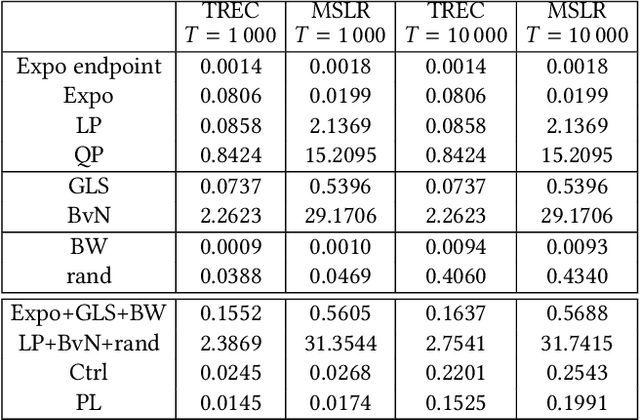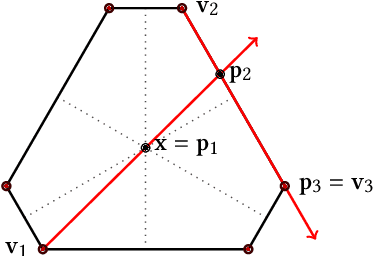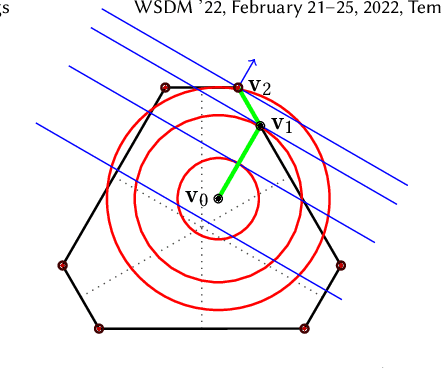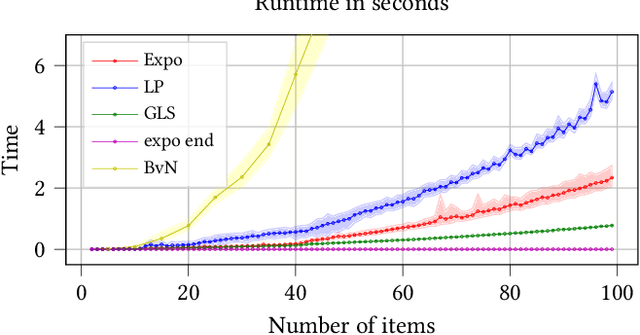Introducing the Expohedron for Efficient Pareto-optimal Fairness-Utility Amortizations in Repeated Rankings
Paper and Code
Feb 07, 2022



We consider the problem of computing a sequence of rankings that maximizes consumer-side utility while minimizing producer-side individual unfairness of exposure. While prior work has addressed this problem using linear or quadratic programs on bistochastic matrices, such approaches, relying on Birkhoff-von Neumann (BvN) decompositions, are too slow to be implemented at large scale. In this paper we introduce a geometrical object, a polytope that we call expohedron, whose points represent all achievable exposures of items for a Position Based Model (PBM). We exhibit some of its properties and lay out a Carath\'eodory decomposition algorithm with complexity $O(n^2\log(n))$ able to express any point inside the expohedron as a convex sum of at most $n$ vertices, where $n$ is the number of items to rank. Such a decomposition makes it possible to express any feasible target exposure as a distribution over at most $n$ rankings. Furthermore we show that we can use this polytope to recover the whole Pareto frontier of the multi-objective fairness-utility optimization problem, using a simple geometrical procedure with complexity $O(n^2\log(n))$. Our approach compares favorably to linear or quadratic programming baselines in terms of algorithmic complexity and empirical runtime and is applicable to any merit that is a non-decreasing function of item relevance. Furthermore our solution can be expressed as a distribution over only $n$ permutations, instead of the $(n-1)^2 + 1$ achieved with BvN decompositions. We perform experiments on synthetic and real-world datasets, confirming our theoretical results.
 Add to Chrome
Add to Chrome Add to Firefox
Add to Firefox Add to Edge
Add to Edge